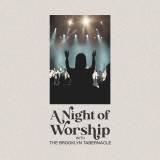Elements of A Good Singer

To sound well as a singer, you should have solid support for all the fundamentals of good singing to enable you to produce clear notes that don’t waver. This means you have the necessary combination of the proper posture, proper breathing techniques, and what is known as the overall voice sound, a.k.a. good vocal tone. Here are the qualities to have for you to become a good singer.
Vocal Control
This includes the vowels sustained in the lyrics and the characteristic sound or timbre of the singer’s voice. Is your voice light or is it heavy, is it narrow or broad?
Having a good tone means you also have vocal control, meaning you stay on pitch and sing notes accurately instead of singing in a wrong key or, worse, wandering off on the wrong key.
Volume Control
You know you have good control of your voice if you are able to sing each note in a distinctive manner and handle the leaps in notes precisely, neither jumping not far enough nor too far from the pitch. A good singer performs his/her song at the exact volume. A poorly-trained singer will either sing too quietly to be heard or blast out at every note.
Consistency
Sounding excellent for several notes and then terrible afterward will earn you a bad reputation as a singer. Consistency is a requirement for singing well. This translates to singing in the good voice you started with throughout the song. It requires your consistent volume, vocal, support and vocal tone all the time. A singer holds an audience captive if he/she sings with consistency.
Listening Skills
You have to use your ears more often than other people because, as a singer, there will be several instances when you will have to rely on your ears for the following:
- Hearing and checking your pitch.
- Adjusting your voice tone while singing.
- Making sure that your volume keeps its balance with your music.
- Hearing your fellow singers or band members – if you are singing as part of a group or an act – to complement their own singing.
- Developing an overall musicality by having musical awareness.
- Training your ears in active listening while performing.
Vocal Range
Knowing your vocal range is as important as staying within it. You can always tell an inferior singer because he/she reaches for notes well beyond his/her range which results in flat notes, strained sounds, and cracked voices. A singer who does this frequently will end up damaging his/her vocal cords eventually and find it more difficult to sing even the notes which are within his/her own range.
Style
Although this will come much later, it’s best for you to know now that as you undergo musical training, you have got to create a style of your very own that will distinguish you from other singers. People never mistake Christina Aguilera or Patti LaBelle for anybody else, do they? That’s because both singers have their own distinctive styles that, once heard, determine who is who.
A good singer knows how to adjust his/her volume, voice tone, and overall musical expression to suit a specific musical style. Leah Crocetto, one of the emerging sopranos of a new generation, for instance, sings Verdi characters such as Desdemona beautifully; it won’t be the same if Crocetto sings the rhythm and blues ditties that are Alicia Keys’ staples.
Continued on Page 2>>>>>
Elements of A Good Singer
 Reviewed by Admin
on
2:21:00 PM
Rating:
Reviewed by Admin
on
2:21:00 PM
Rating:
 Reviewed by Admin
on
2:21:00 PM
Rating:
Reviewed by Admin
on
2:21:00 PM
Rating:
















Post a Comment